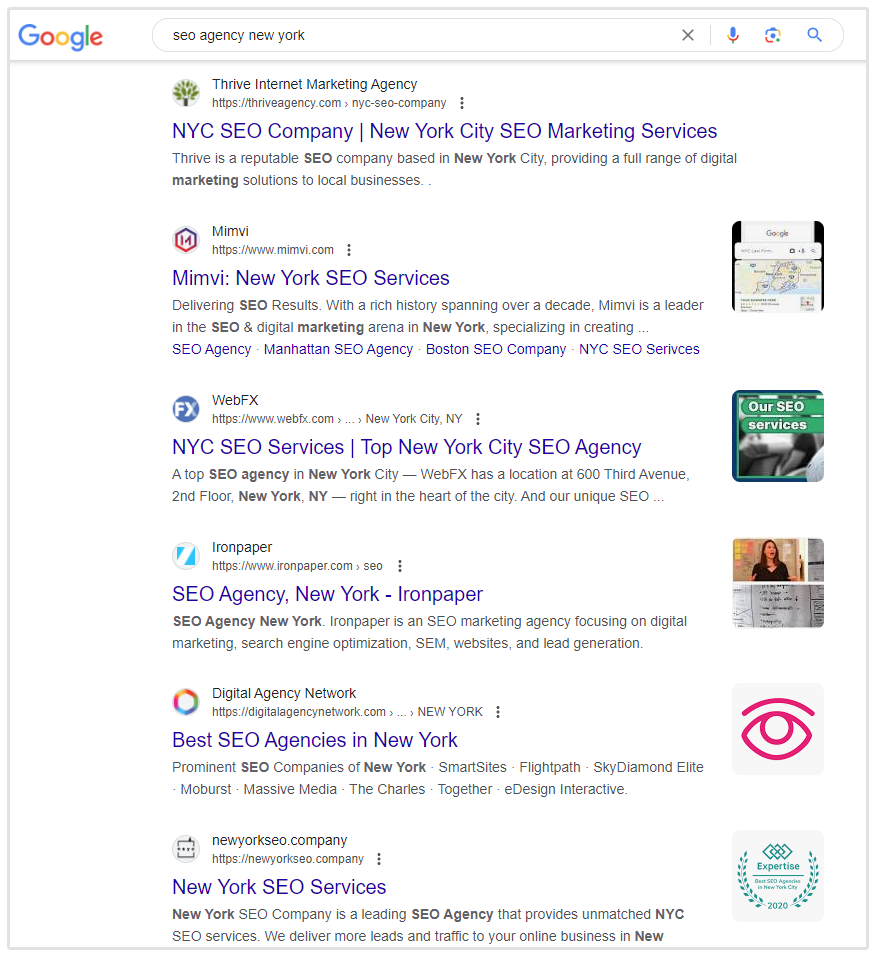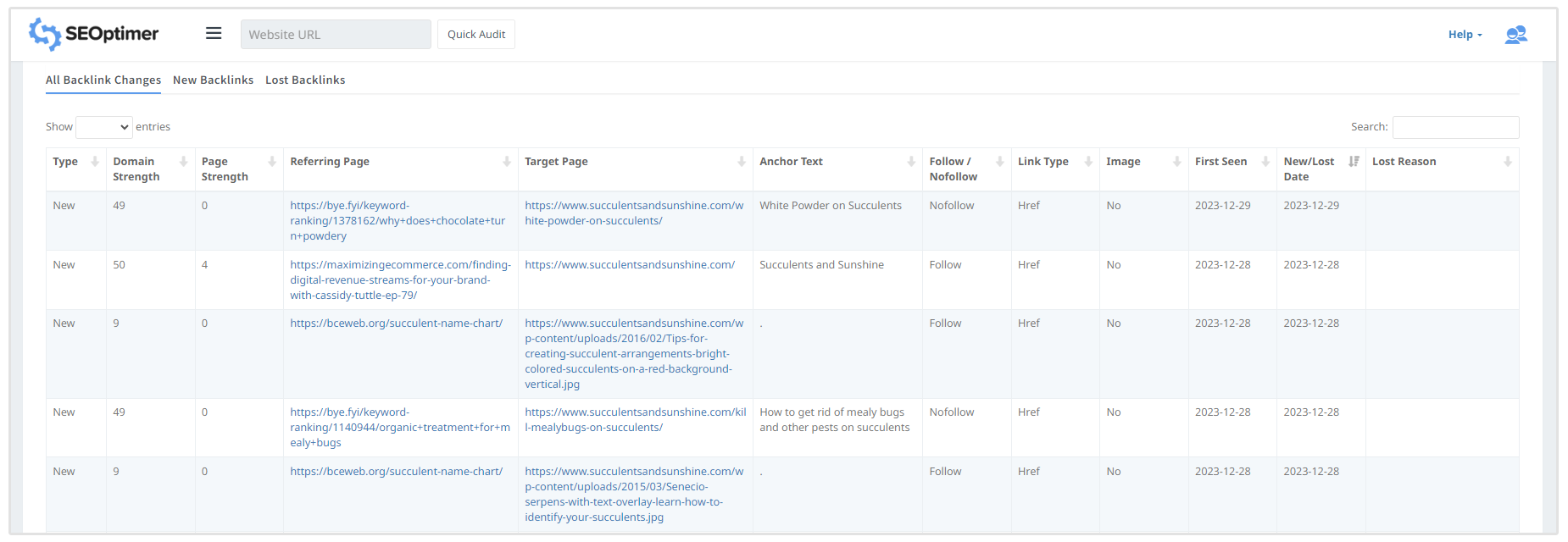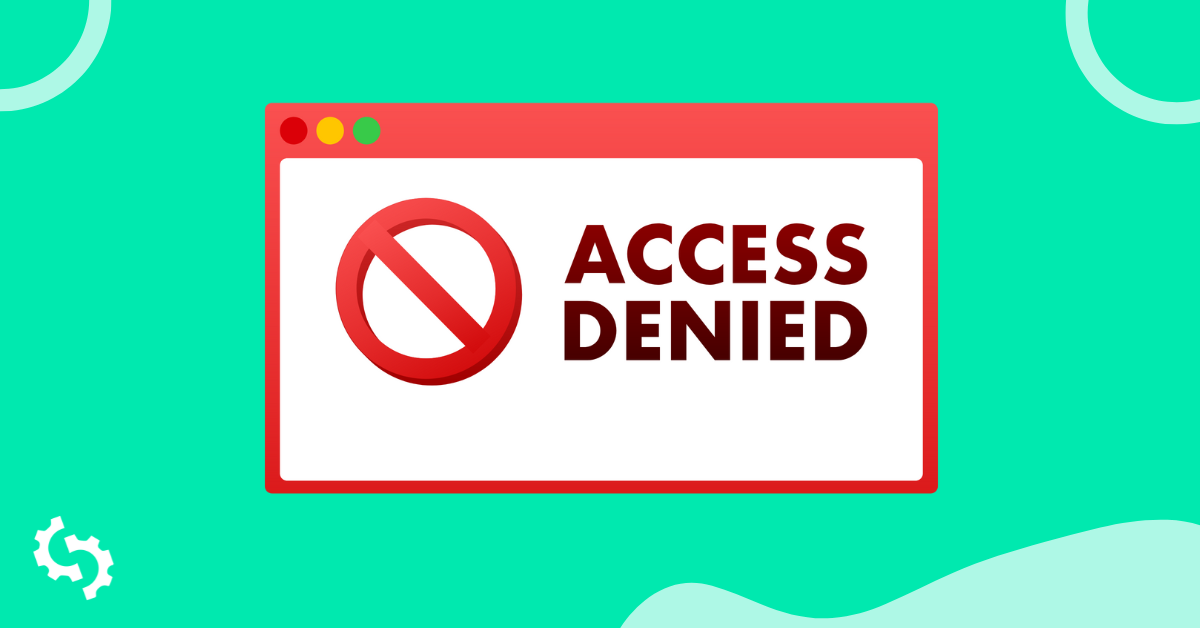
Outsourcing can seem like a dirty word. It conjures up images of "experts" on Fiverr with questionable skills, or cheap, foreign labor working out of a sweatshop.
But that image is all wrong.
For many marketers, outsourcing has been the answer to their prayers—especially when it comes to link building.
Link building is one of those tasks that takes a while to get going.
You need to dedicate a lot of time, energy and resources to do it properly.
And there just aren't enough hours in the day, am I right?
But by outsourcing your link building strategy to an SEO agency or professional, you can get the results you're dreaming of without trading your precious time.
Here's how you can outsource link building without compromising on the quality of your campaign.
The Benefits of Outsourcing Your Link Building Campaigns
.png)
If I were to ask you what your biggest marketing challenge is, I'll bet there's a high chance your answer relates to time.
More specifically, not having enough of it.
The biggest benefit of outsourcing your link building campaigns to someone else is all the time you'll save and can put towards implementing other SEO strategies.
But if you're still not convinced, here are four more reasons why you should consider outsourcing your link building to a professional:
1. Saved money: Although you'll have to pay fees (usually a monthly retainer) to outsource link building, that cost is often cheaper than your business's hourly rate for an employee plus the cost of necessary software and tools.
2. Borrowed expertise: If you've not got years of link building experience under your belt, you can outsource to someone who knows the industry to a T. This means link building will be more efficient and have a greater chance of success.
3. Less worry: A link building expert is less likely to run into SEO dilemmas, right? That means you can take the pressure off your campaigns and feel more at ease with your SEO strategy.
4. A sounding board for new ideas: If you've got a groundbreaking idea that you'd love to try, asking your link building partner can vet it—and prevent you from wasting cash.
When Should I Outsource Link Building?
For many people, the thought of outsourcing their link building campaigns sounds like a dream come true.
And while it can offer the great benefits I talked about earlier, it's still wise to think it through before starting your search for a link building agency or professional. Outsourcing isn't always the right step for your business.
.png)
Here's how you can decide whether you should (or shouldn't) be outsourcing your link building:
Outsource link building if:
- You don't know how to build links
- ...Or you want more expertise from an expert
- You're unable to scale your current strategy
- You have the budget to outsource
- You have the time to find a reputable agency
Don't outsource link building if:
- You're doing it purely to have zero responsibility
- You don't have the budget
- You don't have time to vet new agencies
- You're a control freak!
Stephen Hockman, President and Founder of Trusty Joe, told me the story of how he realized it was time to outsource his company's link building. He said:
"When I tried doing my own link building, I was spending hours just going through Google to find guest post opportunities, checking out sites and collecting email addresses. I’d then go through and personally write an email to each one to see if I could write a guest post on the sites.
That whole process would take me about three days to complete and the response rate I got from my outreach was pretty low—about 5%.
I then had to spend time writing the guest posts to be featured on the sites that responded. Plus, all of that work was just to get backlinks to one page of my site.
I can tell you that I really didn’t like doing link building. The whole process was tiresome and boring for me. I knew something was going to have to change if I wanted to scale up my business.
At the rate I was going, it would've taken me six months or more just to focus on link building to my existing site pages without doing anything else.
So, I hired a link builder to do all of that outreach for me. This person finds the prospects, contacts the site owners, writes the guest posts, etc. while I sit back and focus on what I’m good at.
It’s been working well and each month the link builder sends me a report with the links they’ve acquired for my site.
I couldn’t be happier with this type of working relationship and my business is growing much faster because of it."
5 Trustworthy Tips to Outsource Link Building Without the Risk
Once you've gotten to grips on whether outsourcing link building is the direction you're heading in, you might be worried about the risk attached to it.
In an unfortunate world where SEO scams are rife, you're wise not to assume that everyone who says they're good at SEO actually is.
But, finding a new agency or SEO professional that doesn't leave you bearing the brunt of their lack of experience isn't potluck.
Use these five tips to figure out whether the agency you're investigating is worth your cash—and won't leave you with a nasty Google penalty.
1. Do Your Research

Reputation is critical in SEO. It's how Google determines where a site will rank in the SERPs—and you should follow the same philosophy when looking for a new link builder.
The easiest way to determine an agency's reputation? Look at their online presence.
Link building agencies should know the ins and outs of SEO (and how that impacts rankings), so take a look at sites that rank on page 1 for terms like "SEO agency [your city]" or "link building agency [your city]."
Since they're already ranking—and they're trusted by Google—that shows they must be doing something right.
You could also look at the overall online reputation that your prospective agency has.
Do they have directory listings with good reviews? Are they active on social media? Do they publish in-depth, long-form content on their own blog?
All of these elements will help you to build up an accurate picture of what they're like—and the tactics they use.
You should also look for case studies or customer testimonials. These prove that their strategy works, gets results, and more importantly, you're not their first rodeo.
Find these by doing a site search: "site:URL.com + case studies" or "site:URL.com + testimonials."
If your results don't bring anything valuable, don't be shy—ask the agency outright.
It's your business's hard-earned cash you're investing, after all, and you have a right to know who you're handing over your money to.
Chances are, the agency you're outsourcing to will have these on hand for new enquiries.
If not, that's a reason to be worried. Reputable agencies would be proud to show off their work—and there's likely to be a dodgy reason behind their reason to say no.
2. Know How Much You Should Be Paying
.png)
While it's tempting to look for cheaper outsourcing options, it's important to remember that you're paying for quality here—and quality doesn't come cheap.
If you're looking to sites like Fiverr or People Per Hour to outsource link building, I've got one word of advice: Don't.
These sites are rife with SEO scammers, and when it comes to cheap outsourcing, you truly do get what you pay for.
Instead, pay a little more for a reputable agency that won't take your cash, ruin your rankings and do a runner.
According to Growth Ramp's data, the average SEO charges $76-150 per hour, or $1,000-$2,000 per month.
So if you want someone legitimate and trustworthy who really does know what they're doing, you should expect to pay around that much for their link building services.
3. Avoid Those Who Use Black Hat SEO
.png)
Black hat SEO is any type of spammy SEO tactic that's designed to trick search engines into rewarding a site with higher rankings. That includes tricks like:
- Keyword stuffing
- Spinning content for guest posts
- Fake directory listings
Needless to say, you should avoid any link building agencies that implement these tactics—you'd be at risk of landing your site a Google penalty.
Although black hat SEO is becoming increasingly tougher as Google's algorithm gets smarter, don't assume all agencies are reputable. Many will offer black hat services under a different name.
I asked Steve Brownlie, Director of Consulting at link building agency Reach Creator, why this is the case. He said:
"Unfortunately for the SEO industry, there are many providers out there playing this kind of game.
Even some agencies are duped by people selling hacked links as "white hat guest posts" when they look to outsource their link building. That means they’re selling a potentially fraudulent and maybe illegal service on to their clients as "white hat" work.
The big warning sign for me is anyone claiming to be "white hat" in the first place but then offering a completely hands-off, cheap and easy service for building links.
Putting yourself in the mindset of the webmaster really helps to weed out the suspicious sales pages. If you were a prominent local law firm, would you really be selling a link to a competitor on a three-year-old article on your blog for $25?
If not, then you should be suspicious when that’s available. And especially suspicious when there’s a practically unlimited supply."
You're able to avoid these dodgy agencies by asking for their link building process before putting pen to paper on your contract.
4. Be Wary of Over-Promising
Here's an SEO truth bomb: It's very difficult (pretty much impossible) to guarantee high rankings with any SEO tactic you're using—including link building.
Links have been proven to influence rankings, but many other factors do, too—and some of those might be out of your control, for reasons like:
- An underlying issue with the technical side of your website
- A previous Google penalty
- The backlinks already pointing to your website
For that reason, avoid link builders and agencies that guarantee any results, like an increase in keyword ranking positions or a boost in your Domain Authority.
It's something they're unable to do, and more likely a tactic to get you into a contract and handing over your money (which, if you hadn't guessed, is a situation you definitely don't want to be in).
Instead, stick to agencies that are honest about timelines and results.
Remember: "This could take a few months to implement" is much better, and more likely, than "this will rank on page 1 in a week."
5. Set Clear Expectations on Both Sides
.png)
The final thing you'll need to do is set clear expectations on both sides. Both you and they should be clear on:
- The goals you're trying to meet (or the reason why you're outsourcing)
- How often you'll communicate
- How you'll communicate
- What they'll be reporting on (also known as KPIs)
- How often you'll receive a report
I asked Paul Beard, Head of Marketing at digital agency Attain Design, to chat with me about this process.
Agreeing that business owners should know what they're getting before agreeing to a deal, he said:
"All clients want their expectations set before making an investment. And rightly so—good marketers should always be thinking about growth targets and ROI. Unfortunately, there are so many unknowns in SEO that it's very difficult to set targets and timeframes.
While I can understand the temptation to make promises, any credible agency should be explaining the variables and challenges instead. I've always found that most prospective clients appreciate the honesty."
Don't just rely on goodwill to enforce these expectations—bang them in a contract, a legally-binding document, to fall back on if your agency isn't pulling their weight.
You don't want to be paying $1,000+/month to an agency that isn't providing the service they promised.
A Note on Measuring Success
You might remember that earlier, I touched on how taking zero responsibility is a reason to avoid outsourcing your link building.
This is very important to understand.
No matter how much of your strategy is being outsourced, never turn a blind eye and assume your new link builder will do everything they say they will.
Although you're paying them to take care of your campaigns, it's still your responsibility to make sure you're getting a return on your investment—and that the strategy they're using isn't going to cause problems in the long run.
So, use a tool like SEOptimer to track the links they're building and make sure that they're the kinds of links you want for your website.

Here you'll find every backlink pointing to your website. Plus, SEOptimer will automatically send you email notifications to track new additions, so you'll always be in the loop.
Pete McAllister, Director at RoundShark, told me the three telltale signs you should look for in your backlink profile to suss out a dodgy link building agency:
1. "Websites linking to clients that have a large volume of articles, all with varied themes and no continuity. This is what is classed as a "general" blog, which is basically made for the purpose of placing SEO links.
2. Websites linking to clients that have a large volume of links and high vanity metrics, such as Moz Domain Strength, but no organic search traffic. This is another sign of a made-for-linking blog or PBN.
3. A large influx of websites linking to clients without any noticeable newsworthy event is also a warning sign. Unusual spikes in links without a significant company event or change is usually a sign of paid for or privately controlled link building."
If you notice great links being added, that's awesome! You've picked a fantastic link building agency. Be proud of yourself!
However, if you notice low-quality links weaving their way into your backlink profile, ask the agency if they've built them (as some links can come organically).
Give them a warning if they have, and fire them if it repeats. You don't want to cram tons of spammy links into your profile, only to have to sieve through and disavow them later down the line.
That's not going to do anyone any favors—least of all your business.
As you can see, outsourcing link building isn't the trickiest task in the world, but it's also not a process to be shrugged off.
Finding a reputable link building agency or professional is no small feat—especially when the SEO world is full to the brim with scam artists.
Always be wary of who you're handing over your business's SEO budget to. They need to be trustworthy, and they should pass all five of these tests listed here.
If they fail, don't trust them with your time—never mind your website and your cash!










